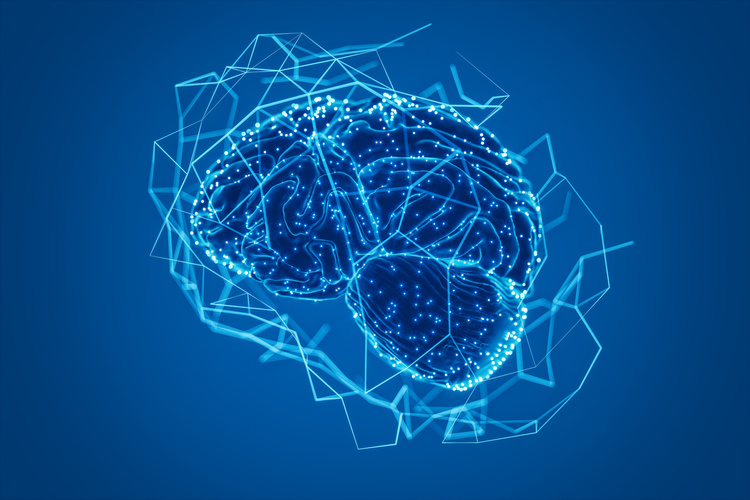
Choose a channel
Check out the different Progress in Mind content channels.

Progress in Mind

Neuroimaging studies of response to antipsychotic therapies and glutamate levels in first-episode psychosis might facilitate prediction of responders. Furthermore, registries could help better understand and predict relapse. Data on both were presented at SIRS 2019.
Although consistently associated with changes in grey matter, no prospective data have so far distinguished the differential effects of antipsychotic medication from psychosis progression in FEP. Sidhant Chopra, Monash University, Australia, presented the findings of a triple-blinded, placebo-controlled trial prospectively investigating changes in grey matter in medicated and non-medicated individuals following FEP.
Low-dose atypical antipsychotic medication appeared to offer protective effects on the illness-related grey-matter decline
Recruits aged 15-24 years of age received intensive psychosocial therapy and were given either an atypical antipsychotic or placebo for 6 months. Of the total 90 recruits, 62 (32 placebo; 30 active therapy) underwent neuroimaging at baseline, 3-months and 12-months as did a group of 27 healthy controls.
Low-dose antipsychotics therapy and grey matter decline
Over 12 months, low-dose atypical antipsychotic medication appeared to offer protective effects on the illness-related grey-matter decline seen within the hippocampus and supramarginal gyrus. Volumetric changes seen in the frontal pole, medial temporal, lateral occipital cortex and cerebellum were related to disease pathology, and appeared unaffected by low-dose medication. Greater volumetric increase within the supramarginal gyrus was associated with better symptomatic outcome, suggesting a key role for this region in mediating psychosis specific-symptomatic recovery.
Greater volumetric increase within the supramarginal gyrus was associated with better symptomatic outcome in FEP
Neuroimaging studies in schizophrenia have shown that antipsychotic agents reduce glutamate metabolite levels; non-remission following antipsychotic treatment also appears to be linked to raised levels of glutamate metabolites. However, as Kate Merritt, King’s College, London, UK, explained, no one has monitored the change in glutamate levels following initiation of antipsychotic therapy.
Neuroimaging studies in schizophrenia have shown that antipsychotic agents reduce glutamate metabolite levels
Glutamine and glutamate levels were assessed using proton magnetic resonance spectroscopy in the anterior cingulate cortex (ACC) and the thalamus in 23 patients with FEP and in 15 healthy individuals at baseline, at 6 weeks and at 9 months. At 9 months, patients were classed as either remitters (n=12) and non-remitters (11).
Thalamic glutamine levels increased over time in non-remitted patients; after 9 months, glutamine levels were significantly higher in non-remitters than in remitters. This change in glutamine level correlated with change in severity of PANSS positive, total and general symptoms. Symptomatic improvement over the course of treatment was associated with a longitudinal reduction in thalamic glutamine levels. No changes in glutamate metabolites were noted in responders at any time point and in neither patient group were significant changes noted in the ACC.
Symptomatic improvement over the course of treatment was associated with a longitudinal reduction in thalamic glutamine levels
Early onset schizophrenia (EOS) is another area in which data are limited. Using the Danish health registers, Ditte Lammers Vernal, OPUS North, Denmark, compared representative samples of patients with EOS (n=1,223) and adult onset schizophrenia (AOS) (n=15,114) and compared outcomes between 1996 and 2012 and follow-up data available until 2014.
EOS was associated with more inpatient days in the first 2 years after diagnosis than AOS, but not thereafter. Substance use disorders and out-of-home placements contributed to inpatient days. Overall, the findings for both groups were broadly similar; suggesting that, age of onset is not the major characteristic that affects patient outcome.
Age of onset is not the major characteristic that affects patient outcome
A nationwide study of psychotic relapse during maintenance antipsychotic treatment in Finnish patients was presented by Jose Rubio, Zucker School of Medicine at Hofsta/Northwell, New York, USA. To quantify the incidence and risk factors associated with relapse, records from the Finnish registry of patients diagnosed with schizophrenia spectrum disorder, who had at least 8 weeks of uninterrupted treatment and who had been re-hospitalized between Jan 1996 and Dec 2014, were analyzed.
Patients most at-risk of relapse are those most ill at treatment onset
Almost one-third of the patients relapsed while receiving maintenance therapy with antipsychotic medication, either long-acting injectable (LAI) or oral antipsychotics (OAP). It appears those patients most at-risk of relapse are those most ill at treatment onset.
Cumulative dosing of antipsychotics and other agents was also associated with relapse. While this may reflect treatment of refractory patients, who receive higher doses and polypharmacy, it may also have a causal effect which should be investigated further.
Our correspondent’s highlights from the symposium are meant as a fair representation of the scientific content presented. The views and opinions expressed on this page do not necessarily reflect those of Lundbeck.